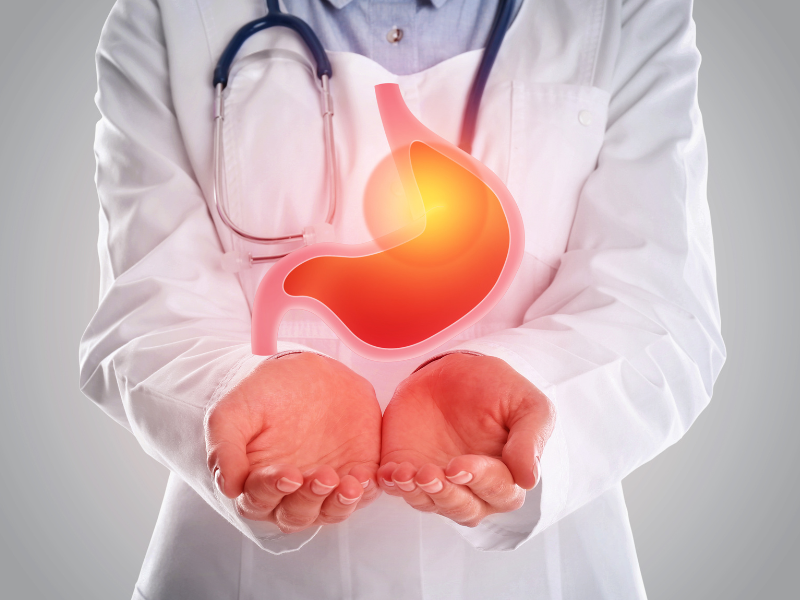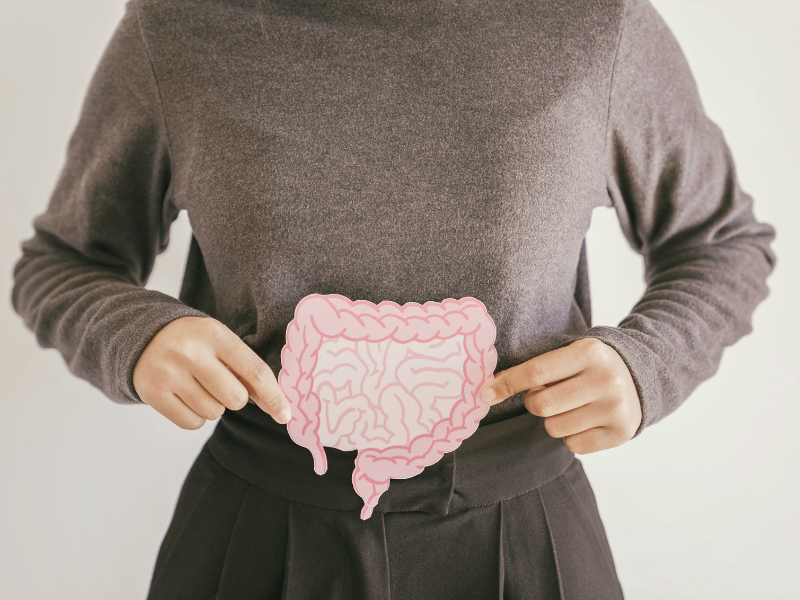Indigestion, often called Dyspepsia- is that uncomfortable feeling of fullness, burning, or pain you might notice after eating. It’s common and usually not serious, but it can make everyday life unpleasant.
What is Happening in Your Stomach
When you eat a heavy or rich meal, your stomach works harder to break it down. It produces more acid, and sometimes that acid irritates the stomach lining or flows back up the food pipe ( (esophagus). The result? Bloating, burning, or a ‘lump in the throat” sensation.
Common Signs
- Bloating and gas with frequent belching
- Heartburn- a burning pain behind the chest or in the upper stomach
- Nausea or mild vomiting
- A heavy or full feeling after only a small amount of food
Clinical Features:
- Upper abdominal pain or burning
- Early satiety (feeling full quickly)
- Belching, nausea, or occasional vomiting.
- Acid regurgitation (sometimes overlapping with gastroesophageal reflux disease)
When to See a Doctor
Most bouts of indigestion are harmless and short-lived. But get medical advice if you notice:
- Severe or persistent discomfort
- Black, tar-like stools or vomiting blood
- Unexpected weight loss
- Indigestion that starts suddenly after age 40-50
- Symptoms that don’t improve with simple self-care
These can signal a more serious condition that requires professional attention.
Everyday Triggers
- Eating too fast or too much
- Rich, spicy, or fatty food
- Alcohol, coffee, or strong tea
- Smoking
- Stress and anxiety
- Certain medications (check with your doctor or pharmacist)

Self-Care Tips
1. Eat smart
Choose smaller, or frequent meals and chew slowly. Avoid lying down for at least two hours after eating.
2. Skip the Excess
Cut back on alcohol, caffeine, and heavily spiced dishes. Loosen tight waistbands to reduce pressure on the stomach.
3. Support Your Stomach
If you also have heartburn, try elevating the head of your bed slightly. Some people find an antacid helpful for occasional discomfort- ask your pharmacist which type suits you.
4. Adopt Healthy Habits
Regular exercise, drinking enough water, and managing stress with relaxation techniques or gentle activities like walking can all reduce flare-ups.
Conclusion
Indigestion is common and often linked to lifestyle habits. With a few adjustments- eating calmly, choosing lighter meals, and reducing alcohol or caffeine- you can usually keep symptoms in check. If problems persist or warning signs appear, consult your healthcare provider for proper evaluation.
Simply stop by any time of day or night at Shell Tampines Ave 2, our Dr Kart Healthcare Vending Machine. It’s convenient and quick- without waiting in a queue when discomfort strikes.
Non-POM Med. available:
- Zenpro 20mg Capsules
- Alversime Soft Capsules
- Axcel Eviline Tablets
- Gaviscon SG Double Action 250mg Chewable Tablets
- Axcel Eviline Forte suspension
*Other Prescription Medications are also available.




